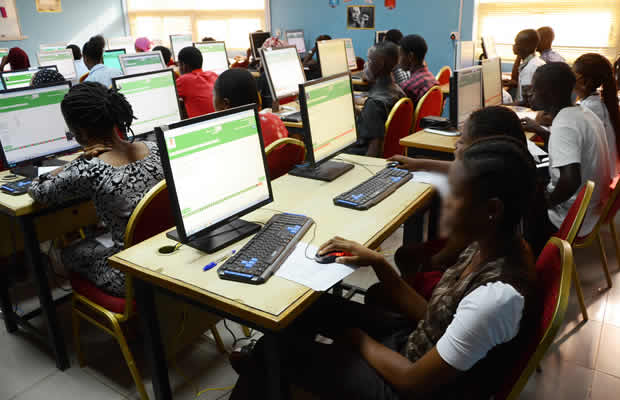The 2025 Unified Tertiary Matriculation Examination (UTME) results paint a concerning picture of academic performance among Nigerian secondary school leavers. Out of nearly two million candidates who participated in the examination, a staggering 1.5 million scored below 200 marks, representing a significant 75% of the total candidature. This stark reality underscores the challenges facing the Nigerian education system, highlighting the urgent need for comprehensive reforms to improve learning outcomes and prepare students adequately for tertiary education. The low performance rate raises questions about the quality of secondary education, access to quality learning resources, and the effectiveness of teaching methodologies employed across the country. The implications of this mass underperformance are far-reaching, potentially limiting access to higher education for a large segment of the population and ultimately impacting the nation’s human capital development.
Further analysis of the UTME data reveals a steep decline in performance as the score thresholds increase. While over 1.5 million candidates fell below the 200-mark benchmark, a significantly smaller cohort of 420,415 managed to surpass this threshold. Even more concerning is the minuscule percentage of candidates, less than 1%, who achieved scores above 300, indicating a severe deficiency in high-achieving students. This disparity in performance underscores the need for targeted interventions to address the specific learning gaps hindering students from reaching their full academic potential. It calls for a thorough examination of the curriculum, pedagogical approaches, and assessment methods to ensure they are aligned with the demands of tertiary education and the broader goals of national development.
Beyond the general performance trends, the 2025 UTME statistics also shed light on specific demographic and circumstantial factors influencing the examination outcomes. A notable observation is the inclusion of 40,247 underage candidates, permitted to participate to showcase their exceptional abilities. However, the results indicate that only a small fraction, 467 candidates (1.16%), demonstrated performance meeting the defined threshold for exceptional ability. This suggests that while early academic advancement can be beneficial for some, the majority of underage candidates may not be adequately prepared for the rigors of the UTME, highlighting the importance of age-appropriate educational pathways and the need for careful consideration before allowing underage participation.
The integrity of the examination process is another crucial aspect highlighted by the released data. JAMB reported 97 confirmed cases of examination infractions and is currently investigating an additional 2,157 candidates suspected of malpractice. These figures, while representing a small percentage of the total candidature, underscore the ongoing challenge of maintaining examination integrity and the need for continuous efforts to curb cheating and uphold the credibility of the UTME. Furthermore, the data reveals a significant number of absent candidates, totaling 71,701, raising questions about the factors contributing to absenteeism, including logistical challenges, personal circumstances, and potentially, a lack of confidence among some candidates.
In addition to the cases of malpractice and absenteeism, the data also acknowledges ongoing investigations into candidates facing biometric challenges, a process aimed at verifying their identities and preventing impersonation. Those cleared during the investigation will be rescheduled for the examination at designated centers, ensuring a fair and transparent process for all eligible candidates. Furthermore, JAMB is still processing the results of certain groups, including blind candidates and those in the Joint Entrance Examination for Overseas Graduates (JEOG) category, demonstrating a commitment to inclusivity and accommodating the diverse needs of all candidates.
The comprehensive analysis of the 2025 UTME results provides valuable insights into the state of secondary education in Nigeria and the challenges facing students transitioning to tertiary institutions. The high percentage of candidates scoring below 200 underscores the urgent need for educational reforms to improve learning outcomes and enhance the quality of teaching and learning. Addressing the issues of examination malpractice, absenteeism, and ensuring access for all eligible candidates are crucial steps towards strengthening the integrity and credibility of the UTME. The data provides a crucial foundation for policymakers, educators, and stakeholders to develop targeted interventions and strategies to improve the quality of education and enhance the prospects of Nigerian youth.














